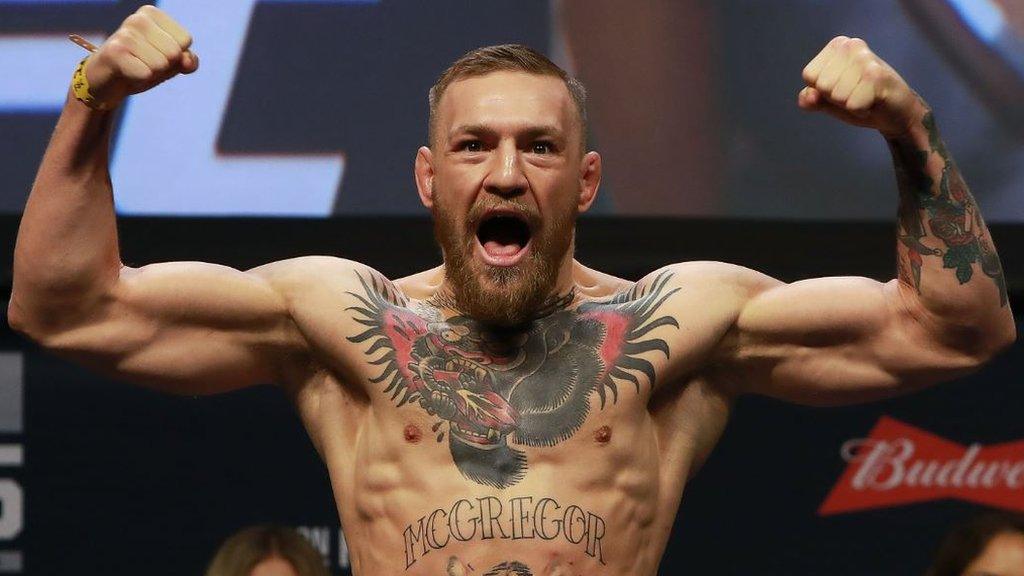Ultimate Fighting Championship: The battle for Asia
- Published
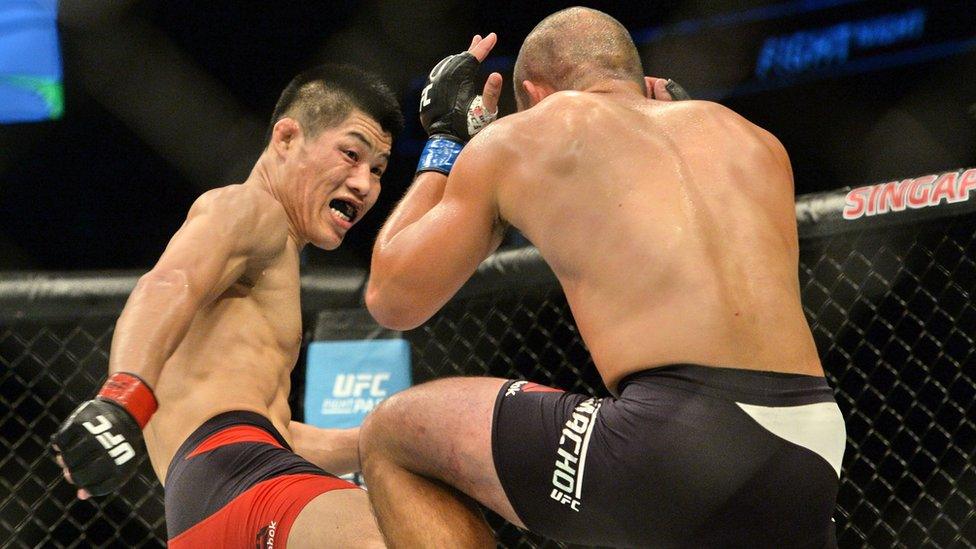
A fierce battle is heating up for the UFC in Asia and it's not just in the cage
There was blood, there was sweat and, if not tears, plenty of cheers.
Ultimate Fighting Championship (UFC) has been one of sport's most high-profile successes of recent years - thrilling television audiences and drawing crowds to fight nights with its combination of wrestling, boxing, jiu-jitsu and kick boxing.
The mixed martial arts (MMA) brand has made household names of Irish fighter Conor McGregor and female champions Ronda Rousey and Holly Holm.
But when the UFC jamboree came to Singapore, it was just the latest effort by the brand to try and replicate the success it has in the US in Asia, after years of setbacks and struggles.
The league wants to make this wealthy South-East Asian city state an annual stopover on its international tour - along with the likes of Macau, Manila, Tokyo and Seoul.
With a 12-bout fight card, its event drew a crowd of more 8,000 spectators, doubling its debut showing in 2014.
'Big names'
And for local fans of the controversial combat sport, it was a rare opportunity to experience fight night in the flesh.
"Since most of the shows are in the US, it's great to be able to watch such a big event live here in Singapore with such big names coming here," one fan told me.
Filipino boxer aiming for UFC glory
Of course, growing popularity goes hand-in-hand with growing profits.
UFC expects income of about $50m (£38.8m) from the region this year. That would be about 6% to 8% of its global revenues.
"Soccer is always going to be on top, but UFC is the fastest-growing sports organisation in the world," says Joe Carr, UFC's senior vice president of international and content.
"There's no reason why UFC can't be up there with other sporting heavyweights like the National Basketball Association or the National Football League in this market."
Cracking China
For most other sports though, cracking Asia involves cracking China.
Critics note UFC's big push to enter the Chinese market back in 2014. Within a year, it was forced to shut its Beijing operations without a fight being held, and relocate to Singapore.
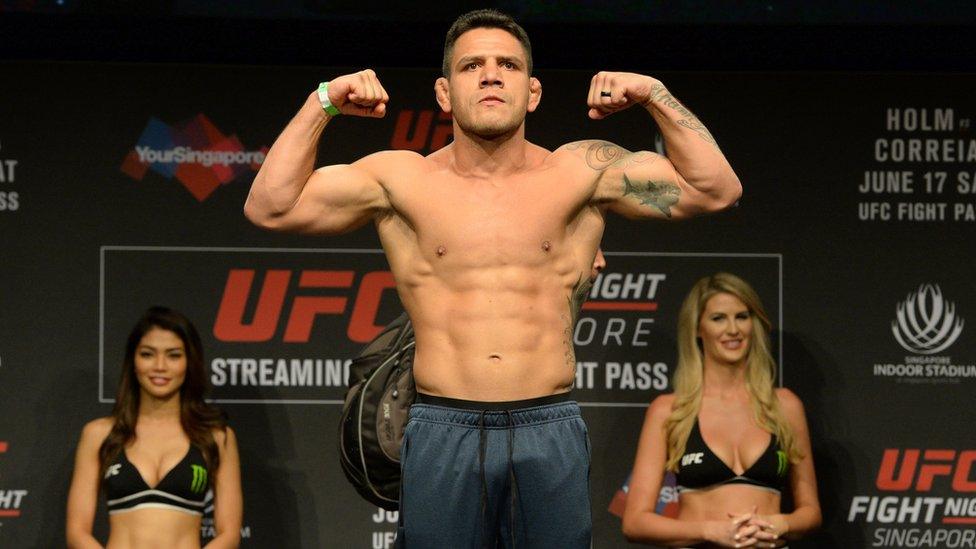
UFC is gunning for a place among the world's greatest sporting leagues
Not deterred, the league is trying again with its first bout in mainland China, scheduled for November in Shanghai.
China does have a growing MMA market, one dominated by rival leagues, including the local Kulun Fight tournament.
"It will be an absolute uphill battle because they don't bring their A-game to Asian cities. Their events in Asia are typically smaller shows," said Marc Raimondi, assistant editor at MMAFighting.com.
"The UFC makes the bulk of its money in the US and Canada. So from a business perspective, it makes sense for them to put their biggest stars on those cards.
"But they really need bigger stars and bigger shows in Asia. They just don't have the kind of Asian talent to compensate and draw a ton of interest in the local markets."
Local heroes
Most in the sport agree that developing local heroes is a sure fire way of creating local fans.
But will UFC be able to produce an Asian star to compare with the likes of McGregor, Rousey and Holm?
"An Asian world champion, a man or woman who becomes a world UFC champion, will be the catalyst to Asia going mainstream, just like Europe did with Conor McGregor," says UFC's chief executive, Dana White.
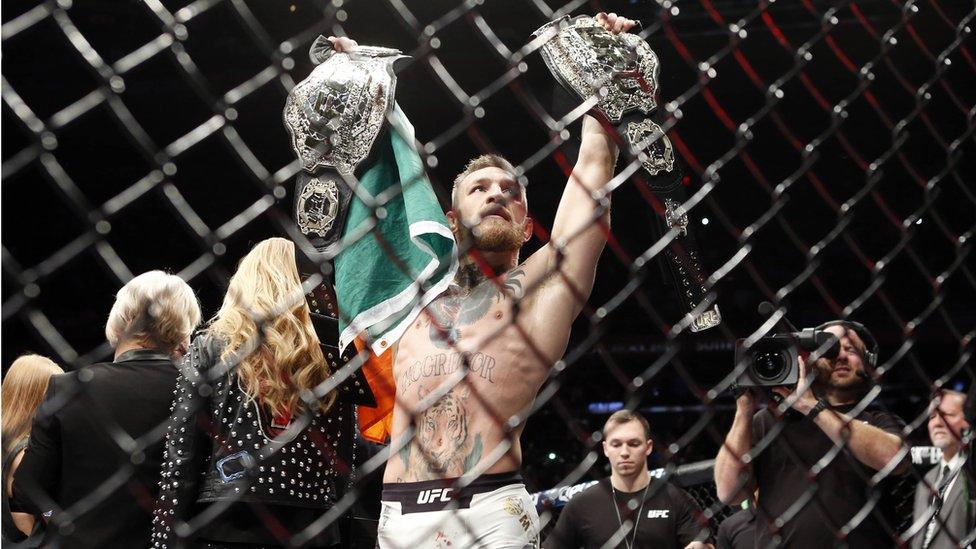
Conor McGregor, the reigning UFC Lightweight Champion
"Women all over the world got into this sport through Ronda Rousey. If we can find a talented man or woman from Asia, and they become a world champion, the market will explode."
But the league currently only has 40 Asian fighters on its roster.
The hopes of finding the next superstar rest on the likes of aspiring champion, Rolando Dy from the Philippines - the son of a former world champion boxer.
He made his UFC debut in Singapore, and despite a defeat, cannot be accused of lacking confidence.
"I am a Filipino fighter, and you don't underestimate fighters from the Philippines," he said, referring to the achievements of his father, Rolando Naverette, as well as boxing legend, Manny Pacquiao.
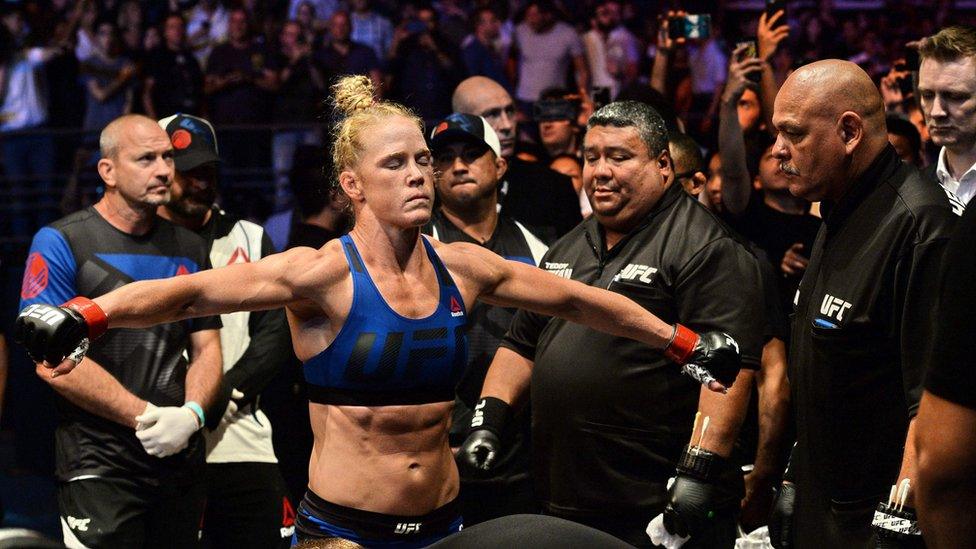
UFC sent its champion Holly Holm to headline its return to Singapore
"It's my time. I believe I am one of the best in the world, and just have to prove it so that people will also believe in me."
Rolando Dy will get his next shot at proving himself when he fights in Japan in September.
UFC estimates that a third of its fanbase is based in Asia. This is, after all, the region where most martial arts - on which this sport is based - began.
But with its other regional rivals having already spent years nurturing home-grown talent, the battle for commercial success will have to be fiercely fought.
- Attribution
- Published11 July 2016
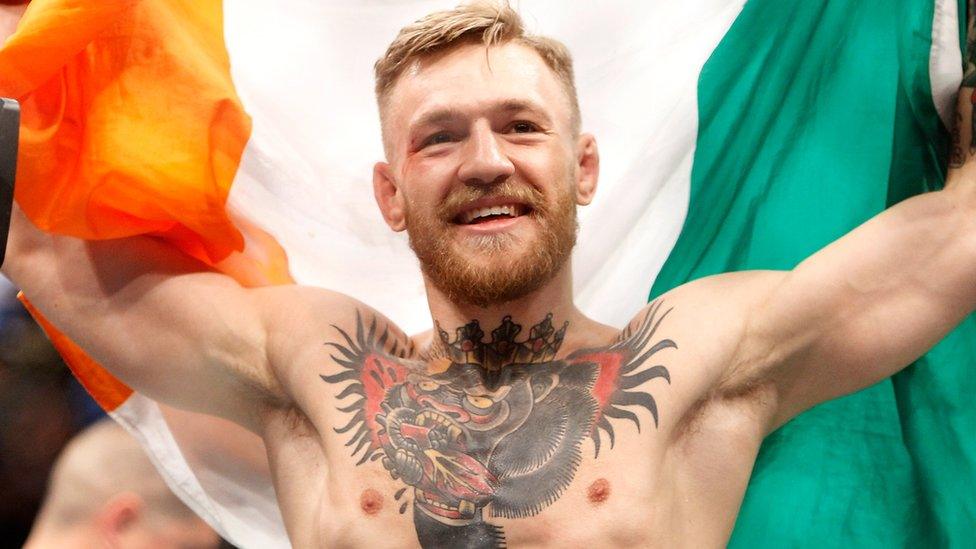
- Published24 October 2013
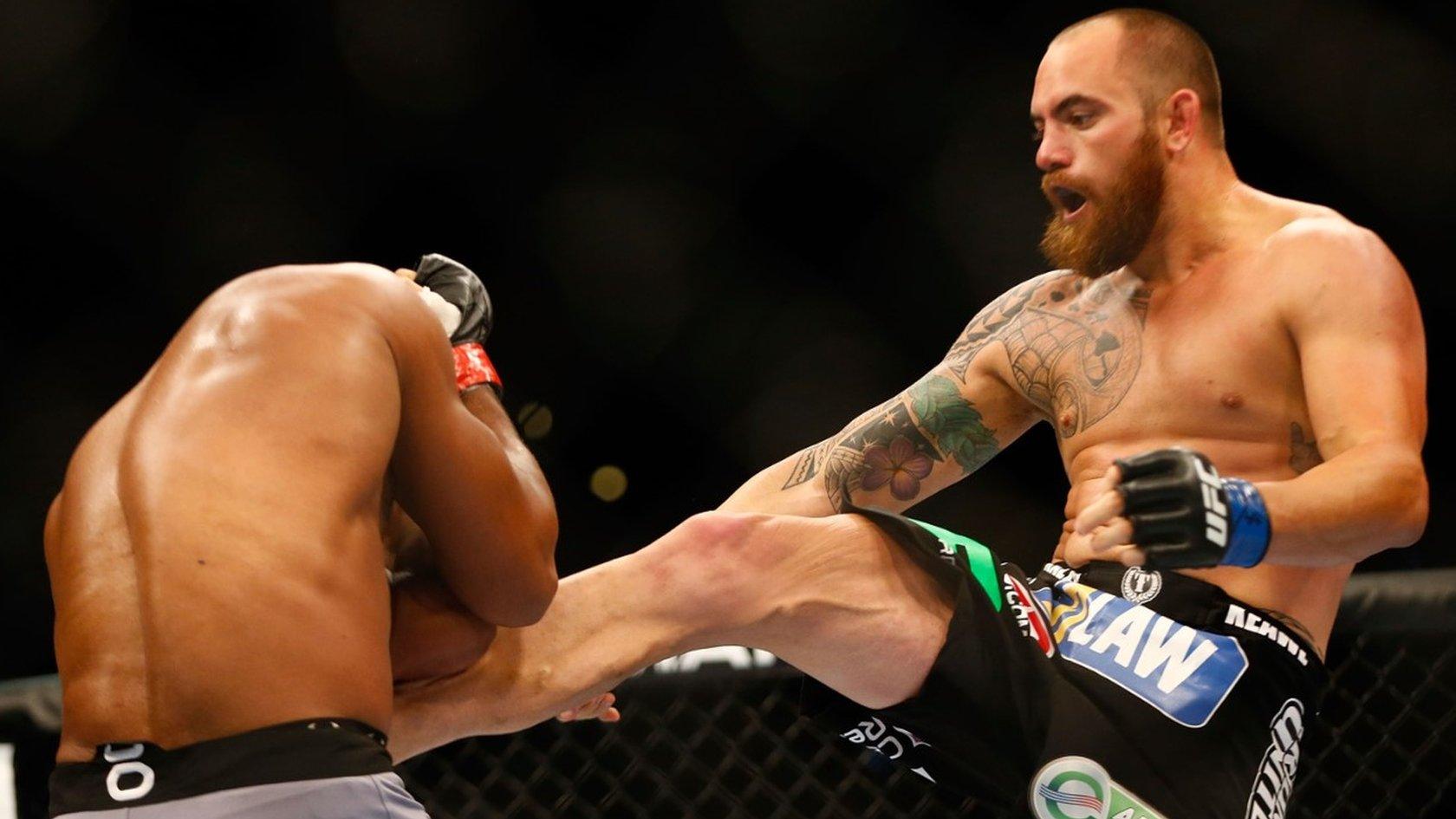
- Attribution
- Published15 June 2017
